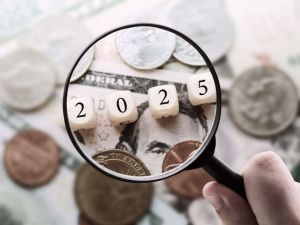Given everything that has happened in 2020, the situation for many could be characterised as ‘uncertain’. Public health, global economics, political upheaval – there are many ways in which the future could surprise us, just as it has done consistently so far this year.
How Moneyfarm keeps your investments secure: Summary Table
| 🛡️ How secure are Moneyfarm investments? | Moneyfarm investments are protected by the Financial Services Compensation Scheme (FSCS) |
| ➕ Any added layer of protection? | Moneyfarm is regulated by the Financial Conduct Authority (FCA) |
| ⚖️ Who is the custodian of Moneyfarm? | Saxo Bank |
| 👮 Who audits Moneyfarm? | Ernst and Young for compliance with the CASS rules |
Fortunately, there are still many things we can be confident that we have under control, and investment security is one of them.
Particularly since the financial crash of 2008, anyone with savings is hyper-aware of where those savings are and how they are protected – just ask former Northern Rock customers. Legislation following the crash has created a safer environment for savers but, ultimately, trust is still something that needs to be earned. A lack of trust is not necessarily a bad thing when it comes to personal wealth, either.
As a wealth manager, questions around investment security are, understandably, something we get asked quite often. When people invest, they want to know that their money is secure independently from those they are investing with. Here are the key security measures in place at Moneyfarm that ensure our clients are safe and confident when entrusting us to manage their investments.
Layers on layers of protection
First and foremost, Moneyfarm is regulated by the FCA. This means we follow a number of regulations aimed principally to protect investors and to ensure fair competition in the finance industry.
For our clients, adherence to CASS means that all client money bank accounts and transaction accounts are clearly distinguished from the firm’s corporate accounts. Moneyfarm has agreements with both the bank and the custodian that it holds client money and assets with – Moneyfarm then acts as trustee in controlling these accounts.
On top of these layers of protection, our clients’ assets are ring-fenced at a separate institution. Moneyfarm has chosen Saxo as its custodian, which holds assets on behalf of our clients. This means that, even in the worst scenario of Moneyfarm becoming insolvent, your money and assets would still be safe.
Similarly, any uninvested cash you have with Moneyfarm is held by Saxo and Barclays Bank. Again, it’s fully segregated from Moneyfarm’s own funds, meaning any uninvested funds you have are protected in the event that Moneyfarm were to become insolvent. We’re audited annually by Ernst and Young for our compliance with the CASS rules, who produce a report which is sent to the FCA.
On top of this, Moneyfarm completes an annual due diligence process on our partner Banks and custodian, which looks at the credit quality & financial resources. The annual due diligence report is approved annually by our board of directors.
Reconciliations, too, are performed on a daily basis. These ensure the accuracy of our internal accounts and records against those of the third parties we use. Any discrepancies identified are dealt with by the close of business that day as per FCA requirements.
As well as all this, investments held by Moneyfarm are protected by the Financial Services Compensation Scheme (FSCS). As such, they’ll cover investments up to £85,000.
Moneyfarm is here to stay
As individuals become more comfortable moving away from traditional financial monoliths and towards innovative digital offerings, they’ll suddenly be given an unprecedented degree of choice. One side effect of that choice is that customers may not be too familiar with the company they choose to invest with.
So, here’s a look at the position Moneyfarm is in at the end of Q2 2020. We have, from a business standpoint, been well equipped to deal with this year’s upheaval. We are largely working from home and we have had to reassess the risk levels on our portfolios in light of the market movements, but our business has remained solid throughout. On that note, we recently altered our risk levels again to capitalise on the opportunities currently arising.
Our full team of investment advisors and portfolio managers have been working round the clock to provide the same level of service that got us to this point. We also have institutional shareholders in the form of Allianz and Poste Italiane, investors that have added levels to our business that go far beyond the investment itself.
Ultimately, Moneyfarm is no longer a startup. It hasn’t been for some time. It is a scaling up business operating across three countries, which recently passed £1 billion in assets under management. Regulation means that assets are protected no matter what happens to us, but knowing their investments are with a growing business built on providing a quality service should give investors confidence.
Book a callIf you have any questions about the security measures Moneyfarm has put in place, or want to talk through your investment options, please feel free to get in touch with a member of our investment advisory team.
FAQ
Is Moneyfarm protected?
Yes, Moneyfarm is regulated by the Financial Conduct Authority (FCA). Your investments with Moneyfarm are protected by the Financial Services Compensation Scheme (FSCS) for up to £85,000. Moneyfarm has Saxo Bank as its custodian, and Saxo Bank and Barclays Bank hold any uninvested cash with Moneyfarm. So in insolvency, your money and assets would still be safe.
Is Moneyfarm good for beginners?
Moneyfarm is very beginner-friendly, with different investment portfolios designed to match your risk tolerance. A robo-advisor is also available for hands-off investing, and if you are concerned about ethical investing, a socially responsible portfolio is available.
Is Moneyfarm actively managed?
Moneyfarm is actively managed. Your portfolio is rebalanced and adjusted quickly in response to underlying market conditions so that you will always get good returns.
*As with all investing, financial instruments involve inherent risks, including loss of capital, market fluctuations and liquidity risk. Past performance is no guarantee of future results. It is important to consider your risk tolerance and investment objectives before proceeding.





